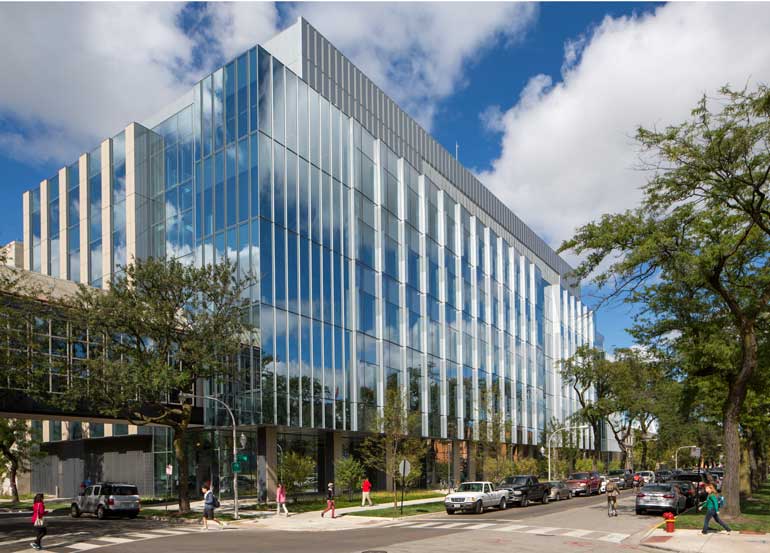Final approval for the construction blueprint of the new dorm at 61st Street and Ellis Avenue is on the way, according to University officials.
The new dorm, slated to open in 2008, will cost over $100 million and will be home to approximately 900 students in nine residential houses. Coinciding with the sale of Shoreland Hall, the new dorm will add an additional 250 beds to the house system.
Steve Klass, vice president and dean of students in the University, said, “[The new dorm] will bring the 650 students currently housed in the Shoreland closer to campus to integrate them more intentionally in University life.”
The new dorm is a response to both the decaying condition of the Shoreland and the demand for on-campus student housing following the opening of the Max Palevsky Residential Commons. But house names will not in all cases carry over from the Shoreland.
“House names give the University an opportunity for fundraising,” said Cheryl Gutman, deputy dean of students for housing and dining services and assistant dean of the College. “The Shoreland house names will have a place in the new building. Whether this is a house name or they get used for some other space, remains to be seen.”
The new dorm is also designed to keep upper-level undergraduates in housing. Gutman said, “The house system has historically been important for providing a means for students to form a healthy community.”
University administrators point out that low supply and inadequate housing have caused many undergraduates to move out of housing, changing the nature of the housing system.
“We are incorporating housing styles in the new building (e.g. suites, singles) that are more attractive to older undergraduates, with the goal of holding onto more third- and fourth-years than currently live in the system,” Klass said in an e-mail interview.
In order to meet increased demand, the University will also be renovating the Burton-Judson dining hall. The hall will be expanded south and the food options will closely resemble, but not be identical to, the options at Bartlett Commons. The new dining hall will offer a kosher meal service, not just a deli, and students will pay for meals, instead of individual items.
The new dorm and Burton-Judson will be home to over 40 percent of all students in the housing system. Administrators believe that this will change the social landscape of campus.
“The Midway will no longer be considered to be the end of campus,” Gutman said. “It will make campus at the same time more intimate and larger.”
The dorm is part of a larger construction plan for south campus, the area between the Midway and 61st Street. Other plans include a parking structure at 61st Street and Drexel Avenue, a winter garden directly south of the skating rink, and the Center for Biomedical Discovery at 57th Street and Drexel Avenue, which recently had its ground-breaking. Because of its proximity to Woodlawn, the new dorm has sparked some concern among local community activists and residents. Some fear that the presence of the new dorm will make the area more desirable to outside residents and will drive up rent prices, displacing many current residents, said Alex Goldenberg, an activist with Student/Tenant Organizing Project (STOP) and a fourth-year in the College.
Residents and activists complain that the University has not done enough to protect affordable housing in the area. “The University needs to be more proactive and have a strategy for ensuring the improvement, preservation, and even expansion of affordable housing,” Goldenberg said.
The University has been in a dialogue with community activists. “Many residents have been participating in the meetings which the University has hosted,” Goldenberg said. “They and I hope that their input will be taken seriously.”
The University is taking a number of steps to involve the community in the new project, administrators say. The dining hall, café, and ground-floor amenities—including a convenience store and dry cleaners—will be open to the entire community. The University is also working with the Urban League, a black social-change organization, to ensure that jobs will go to local residents.
“We see this project not as a campus-edge development, but as an opportunity to provide a meaningful point of contact between the University and our neighbors to the south,” Klass said.









